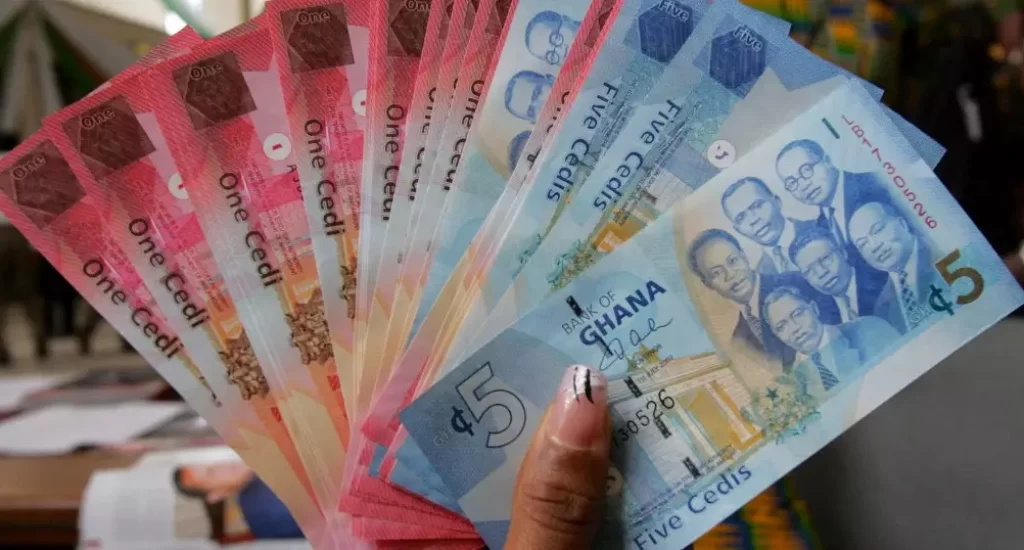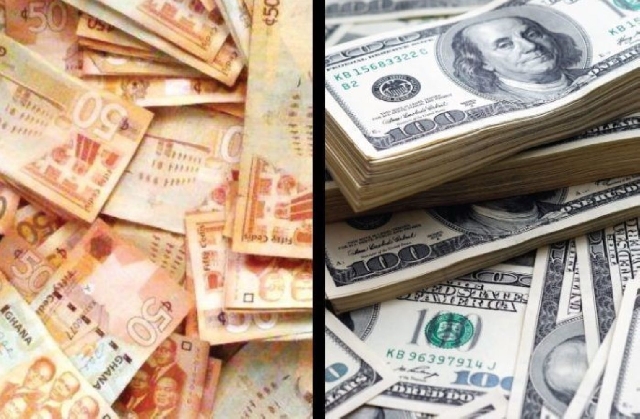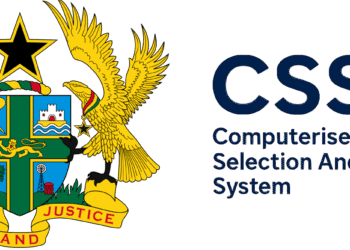Ghana’s ongoing forex shortage is causing widespread disruption among importers, spare parts dealers, and traders, who are increasingly reliant on informal markets due to limited access to dollars through official banking channels.
According to the IMANI Center for Policy and Education, businesses now find themselves trapped between official exchange rates that do not reflect true market realities and escalating costs in the black market.
Despite recent signs of the cedi’s recovery, the forex shortage continues to strain operations for many traders. IMANI Africa reported that at Abossey Okai, a key hub for spare parts dealers, the persistent challenges have not eased.
Although the cedi appears stronger in formal records, traders argue that import duties remain inflated, exacerbated by Customs using exchange rates misaligned with the official interbank rate.
Consequently, businesses expecting relief from a stabilizing cedi are instead facing higher charges and unpredictable policy decisions.
“But why does this mismatch persist? One key reason is that the Bank of Ghana is deliberately keeping the interbank rate low in order to signal currency strength. In doing so, it hopes to manage expectations, shore up investor confidence, and present the image of macroeconomic stability.”
IMANI Center for Policy and Education

However, such interventions distort the market. The managed rate fails to reflect genuine supply and demand dynamics, with commercial banks conducting minimal trades at the official rate, thereby sidelining real market pressures.
Banks, IMANI explained, are hesitant to sell dollars at the official rate due to potential losses.
This results in restricted access to foreign currency within formal banking systems, pushing traders and importers toward the black market, where the true exchange rate hovers at GH¢11.50 or higher.
This situation has effectively created a two-tier FX system: an official rate presented in reports, and a much harsher reality on the ground where the majority of businesses operate.
Structural Reforms, Stable Currency Crucial To Ending Forex Shortage
According to IMANI, this crisis is symptomatic of deeper structural issues in Ghana’s economy. Bright Simons of IMANI Africa emphasized that a long-term resolution requires strengthening Ghana’s structural competitiveness.
In his analysis, building a stable currency is contingent upon fostering a robust economy that produces high-value goods and services sought after globally.

To address this forex shortage, IMANI proposed several policy interventions. First, Ghana must prioritize mechanized agriculture, smart industrialization, modern infrastructure, skill development, and innovation. Currently, over 80% of Ghana’s exports are unprocessed commodities.
Without transitioning to value-added exports, the country will remain dependent on raw goods exports while importing most of its consumer and capital goods, perpetuating chronic currency instability.
Second, the think tank suggested improving the trade balance by supporting domestic production and smarter imports. This involves channeling imports toward capital goods and intermediate products essential for local industry growth.
Simultaneously, efforts should be made to diversify exports, moving beyond raw cocoa and gold towards processed items and tradable services that generate stable foreign earnings.
“Publish program performance data, create feedback loops to adapt and improve, and encourage independent scrutiny from think tanks, academia, and the public. Without learning and transparency, we keep recycling the same broken tools under new names with the same disappointing outcomes.”
IMANI Center for Policy and Education
Accordingly, IMANI underscored the importance of transparency in industrial policy. Using examples like Darko Farms and Ekumfi Juice, Bright Simons argued that public funds allocated through Ghana’s EXIM Bank need better accountability. Millions have been spent with limited tangible outcomes.
IMANI also cautioned against short-term political tactics aimed at satisfying public demands for immediate fixes, such as headline-friendly efforts to “fix the cedi”.

According to IMANI Africa, the goal of the government “should be to build an economy where the cedi is strong because the fundamentals say so.”
Without embracing necessary structural reforms, Ghana’s forex market will remain vulnerable to speculative pressures and global economic fluctuations.
The think tank stressed that unless Ghana addresses these foundational weaknesses, businesses will continue to grapple with a forex shortage, misaligned duties, and an FX regime that contradicts itself between official statements and practical realities at banking counters.
Ultimately, IMANI concluded that the country’s focus should shift from creating temporary perceptions of a stable currency to building an economy that inherently supports a strong cedi based on solid fundamentals.
Only then can Ghana sustainably overcome its forex shortage and secure long-term economic resilience.
READ ALSO: Shock Loss for Societe Generale as GSE Records Mixed Signals in First Weekday Trading



















